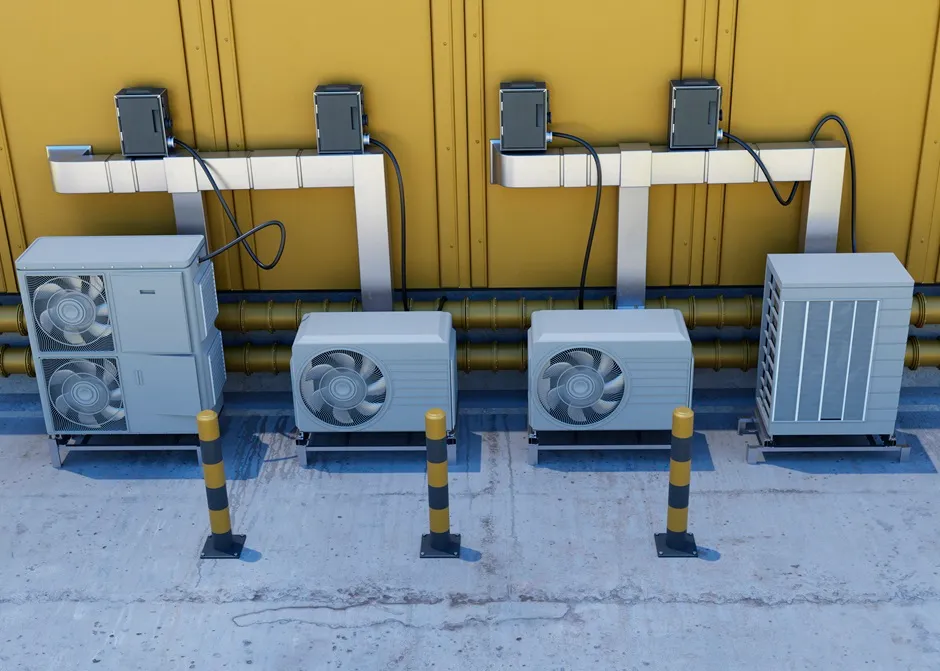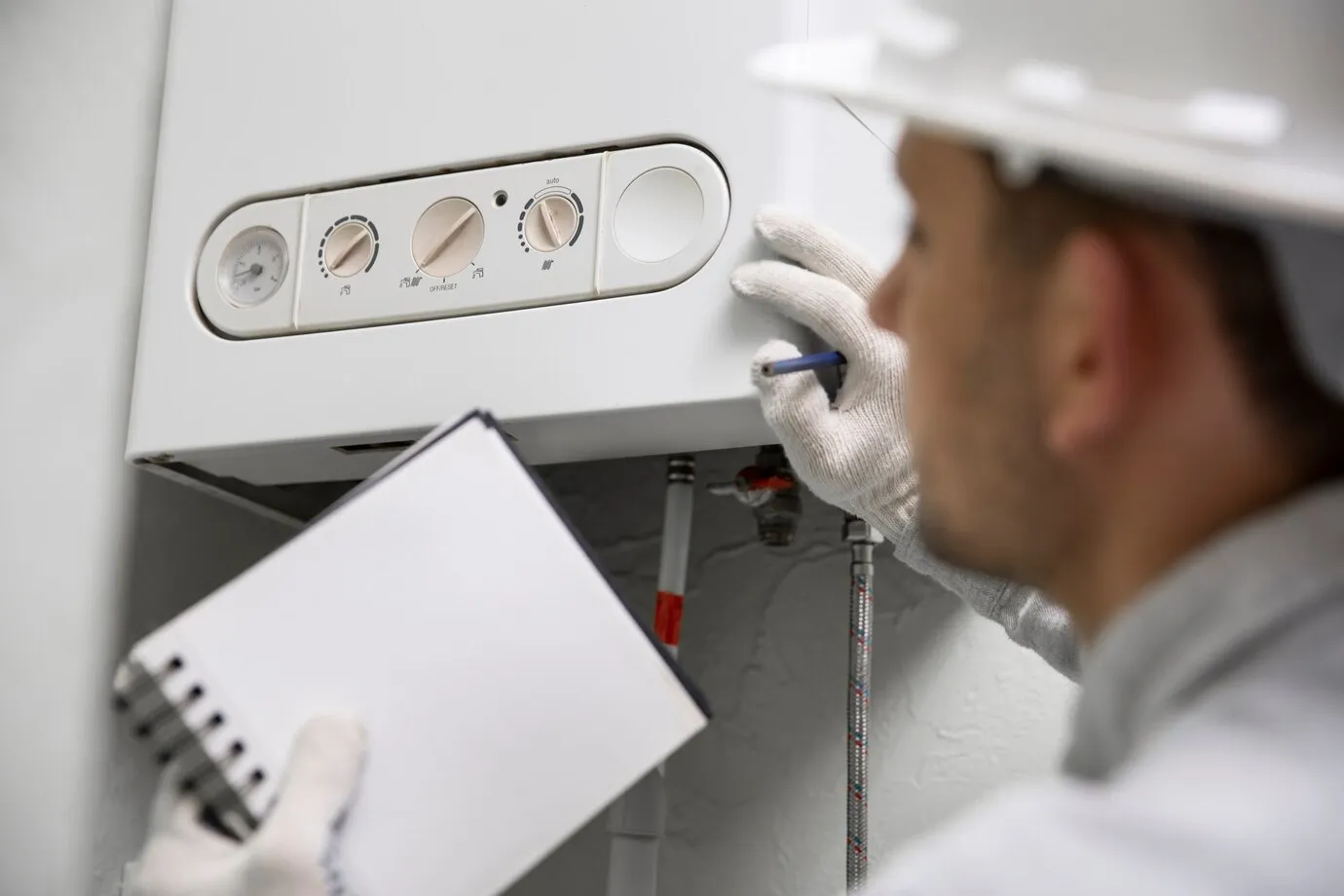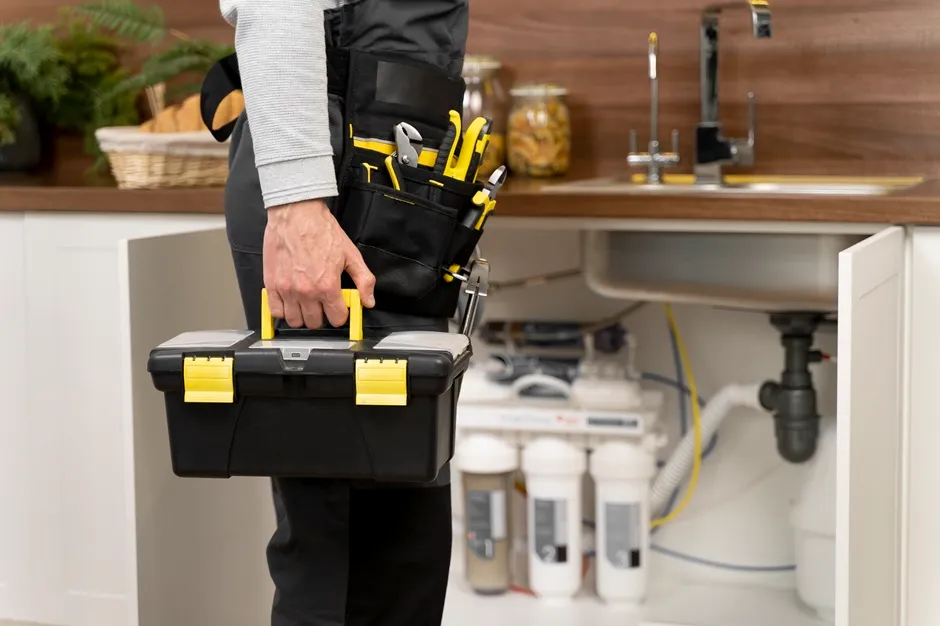Choosing the right central heating installation is one of the major decisions a homeowner can make. The right system not only guarantees comfort in your living environment but also contributes immensely towards the overall energy efficiency of your home. With the many available central heating options, it may be daunting to make a choice as to which suits your best needs.
The choice of the right central heating system is a matter of concern, and below we go into details concerning factors to be considered in selection, the benefits accruable from different types of systems, and professional heating installation.
Understanding Central Heating Systems
Understanding the basics first before proceeding to discuss the various selection options, here is what you should know about central heating: Central Heating was devised to warm your whole house from a single source-usually a boiler or a heat pump. The heat generated circulates through a network of pipes and radiators or ductwork to ensure a consistent level of warmth in your home.
Several central heating systems are available, and all have some advantages and things to consider. Knowing the options will help you make the right decisions as you are building your new home or perhaps upgrading an existing one.
Types of Central Heating Systems
There are several options available in regards to the installation of central heating. The following are some of the most common kinds:
Gas Central Heating
Gas Central Heating is the most popular in Britain, where it is both efficient and reliable and rather inexpensive. In this system, the water is heated by a gas boiler, which later circulates through the radiators and taps. Modern boilers are very efficient in energy use and are thus very good options for any person trying to minimise their carbon footprints as well as lower energy bills.
Electric Central Heating
In houses that do not have access to gas, electric heating systems are used mainly. They work on the principle of converting the electricity into heat, which is then further supplied via radiators or underfloor heating. Although more expensive to run than gas, electric systems do offer easier installation and less maintenance. This is quite adequate for small homes or properties that have very limited requirements as far as heating is concerned.
Oil Central Heating
Properties that are disconnected from the gas grid can use oil central heating. For the most part, it works just like the gas system: burn the oil to heat up the water. Oil systems are a little more expensive to install and maintain but remain an excellent option in the rural areas where access to gas is an issue.
Heat Pumps
Heat pumps are an eco-friendly and fast-emerging favourite for heating homes. They work by extracting heat from either the air, ground, or water and pumping that heat into your home to serve heating purposes. Although the initial costs of purchasing heat pumps are higher, considerable returns in the form of long-term savings from operational energy efficiency can be expected. This could make them a very good investment upgrade for those looking forward to heating system options that are in tune with their environmental objectives.
Choosing the Right Central Heating System
Choosing a central heating installation is more than what just meets the eye. Some factors include:
Energy Efficiency
Every homeowner should ideally think first about their central heating system's energy efficiency. The efficiency of your heating installation directly affects your energy bills and the carbon footprint as well. So, if you want to better heating efficiency, consider switching to renewable energy options like heat pumps and installing high-rated efficient systems.
Size of Your Home
The size of the central heating system you will require is going to be dictated by the size of your home; the bigger the house, the bigger the system has to be to deliver consistent heat in every room. Let a professional come and assess your home's needs as far as heating is concerned and advise on the right size of the system.
Installation Costs
While upfront costs shouldn't be the sole factor, they are undeniably among the most influential. As such, gas and oil systems tend to be rather more costly in terms of installation when contrasted with electric systems or heat pumps. Keep in mind that any upfront investment needs to be weighed against the savings coming over time in utility bills.
Maintenance Requirements
Not all central heating systems are the same in that some do need servicing every year to maintain them as safe and efficient as possible. Systems using gas and oil boilers will require annual servicing, while electric central heating systems are much simpler to maintain, although more expensive to run. Almost as important is the need for regular servicing of their heating pumps, which they believe to be very durable and long-lasting.
If you are concerned about minimising your carbon footprint, then you certainly need to consider a renewable option for heating your home through a heat pump. These heat systems can minimise environmental impact and allow for steady use in your home.
The Importance of Professional Heating Installation

It will ensure that the central heating system will work efficiently and safely. Also, such an installer will make sure your system is the right size for your needs. Other than that, ensure it's properly installed, and it meets all the required regulations. This not only ensures its optimal performance but also extends its useful life and avoids safety risks.
Poor installations can lead to a number of potential problems that range in severity from insufficient heating to dangerous carbon monoxide leaks. Installation by a certified professional, however, means you can have complete assurance that your system is in expert hands.
Reasons You Need a Heating Upgrade
With an older, inefficient, or less effective heating system, it is time for you to upgrade your heating. Newer systems boast advanced technology that improves energy efficiency and consistent heating. Moreover, the change to a modern heating system will add value not only to your home but will also save energy consumption in the long term.
Signs that it's time for an upgrade include:
- Frequent breakdowns or repairs
- Uneven heating throughout your home
- Rising energy bills
- A system that is over 15 years old
Upgrading your central heating system can bring more comfort and a reduction in energy costs, but perhaps the best is the satisfaction of knowing that your home is now fitted with the best heating technology.
The selection of the proper central heating installation is one of the most important options concerning a warm, comfortable, and energy-efficient home. With so many central heating options available, you will want to take into consideration factors such as energy efficiency, the size of your home, costs of installation, and any type of maintenance needs. Professional heating installation can ensure that your system is installed correctly, safely operates, and provides years of reliable heating. If your current system is outmoded or inefficient, consider upgrading to a heating system to make a big difference in comfort and value.
At Book The Plumber, we're here to give you the promise of some properly certified heating professionals who have proven experience in home central heating installation. We're also equally committed to upgrading your heating system and making your house as warm and snuggly as possible but with optimal energy efficiency.
Ready to upgrade your heating system?
Fill out the GET FREE QUOTE form or call us at 020 8088 3060 to schedule your professional heating installation today!



